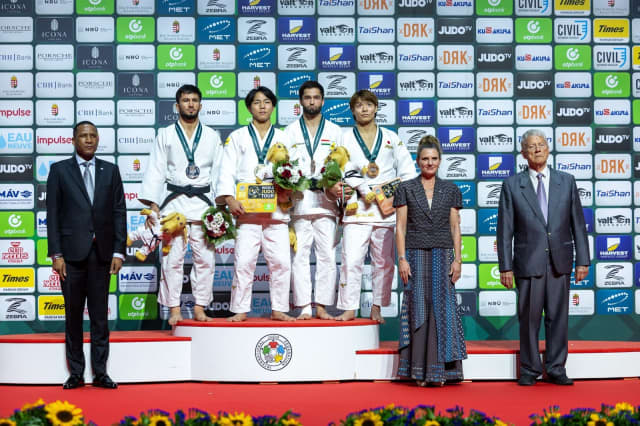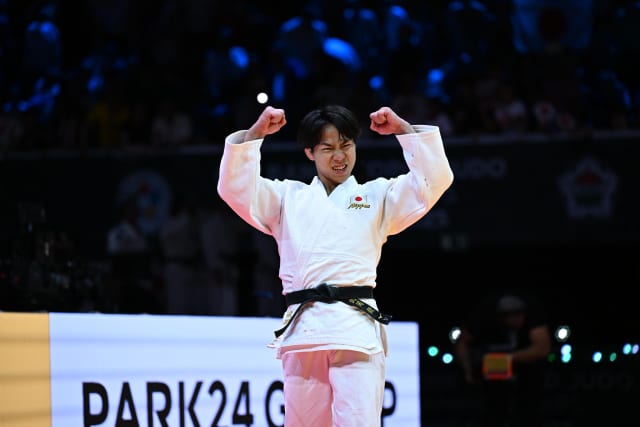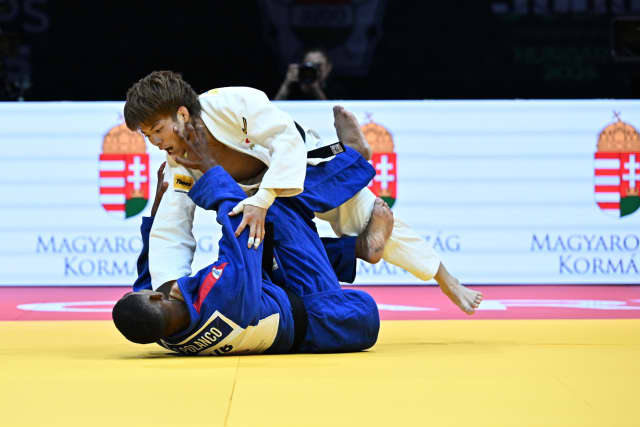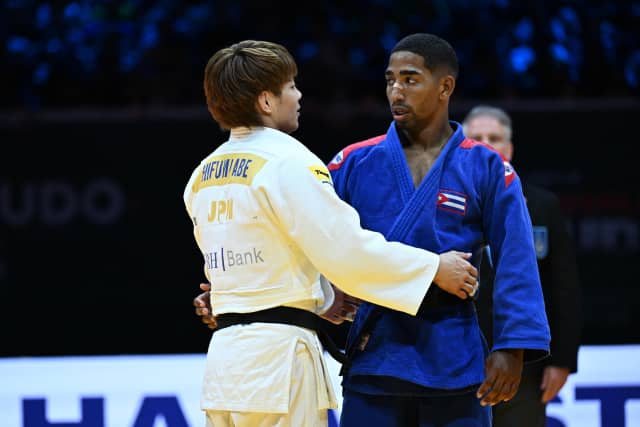Takeoka (JPN) arrived with a committed determination to leave with nothing less than gold. He knew that the day offered him a huge opportunity and the silver would not suffice.
Takeoka never wavered. He logged only a yuko during the match, with a ko-soto-gari, but was never at risk. He was sharp, confident, technical and looked every bit the champion and so Japan leaves with gold but it is not being packed into Abe’s kit bag, this time it’s Takeshi Takeoka who is world champion.
The first bronze medal contest was fought between Walide Khyar of France and Obid Dzhebov of Tajikistan, the man who pushed Abe into the repechage earlier in the day. Among Dzhebov’s superpowers is that of flexibility and he used it superbly to register a first waza-ari against the dynamic Frenchman, throwing with uchi-mata. Khyar tried to counter it but Dzhebov had anticipated that and he braced and drove into the technique to ensure his advantage.
Keeping his lead was not easy; Khyar kept the pressure on but this played into Dzhebov’s hands and he threw again to secure his medal. After the high of beating Hifumi Abe and the disappointment of then losing to Emomali, Dzhebov has had a testing day but he’s been incredible and reaching the podium is his reward.
The second bronze medal featured an unlikely appearance from Hifumi Abe, having lost his quarter-final to the Tajik judoka. Orlando Polanco (CUB) was on the tatami to meet him and could have been forgiven for reserving some of his usual speed, for being fearful or hesitant, but he was none of those things. He served up some powerful gripping, although not with the finesse of his Japanese opponent who stayed composed and professional throughout.
The win went to Abe, unsurprisingly, an ippon scored for an o-uchi-gari. Polanco had an excellent day but Abe, despite his loss, was at a different level. Abe’s professionalism in both victory and defeat in Budapest deserves respect, an illustration of the judo values.
After the medal contest, Hifumi Abe said, “I had to be the bronze medallist. I changed my goal to just get the medal because the meaning of getting bronze or not is totally different. And today Uta’s performance was perfect!”
Final (-66 kg)
Bronze Medal Fights (-66 kg)











